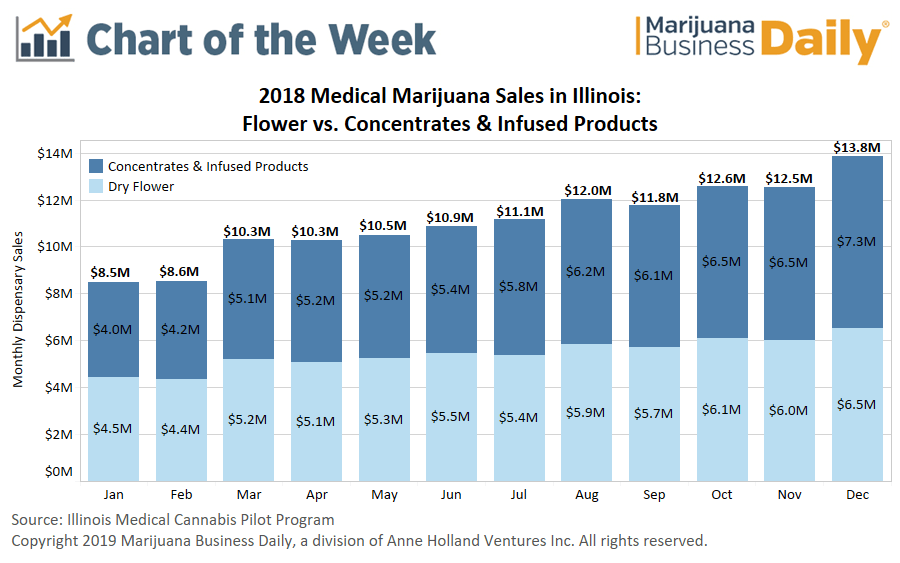The legalization of recreational marijuana appears poised to sweep across the Northeast, which could result in billions of dollars of business opportunities over the next few years in a densely populated region of the nation.
“Now that there’s (retail marijuana) stores in Massachusetts, we are really starting to see the dominoes fall,” said Matt Schweich, deputy director of the Marijuana Policy Project.
Here’s what cannabis entrepreneurs are keeping a close watch on:
- Because of the population density and the relatively short drive time across state lines, some states are concerned about becoming an “island of prohibition,” where residents could make purchases from out-of-state cannabis businesses located nearby. While it would be technically illegal to bring product back across state lines – and businesses probably would stress that to customers – lawmakers are wary that the potential for such purchases exists.
- Many lawmakers, some of whom once balked at legalization, are showing more interest in leading the charge rather than waiting for voters to give the go-ahead for recreational marijuana markets to launch.
- Some states that seemed ahead of the game in potentially opening the door to adult use – think New Jersey – are now looking over their shoulder at what neighboring states are considering doing by way of legalization.
What makes a marijuana Nor’easter notable versus other markets across the country is that state lawmakers and governors are spearheading the legalization effort rather than voters.
“New Jersey is the catalyst,” cannabis attorney Rob DiPisa of Cole Schotz told Marijuana Business Daily. “New York City is going to be the game changer.”
Only a year ago, Vermont became the first state to legalize adult-use marijuana through the Legislature. But in Vermont, only possession and use are permitted; recreational marijuana sales are not allowed.
As state lawmakers legalize adult-use marijuana, “it gives political cover for other legislatures to do it,” said David Boyer, a legislative analyst for MPP.
In fact, he said, “I think they’ll be forced to.”
Many have their eyes on New Jersey and New York, because the pair would be the biggest dominoes to fall.
Recently, some have characterized it as a race between the two rivals.
“I’m not sure that’s playing into the calculus, but it’s definitely on everyone’s radar,” Boyer said. “But New Jersey has been at it for a while now,” he noted, while “New York is now just starting this conversation.”
New Jersey’s lead is slipping
In New Jersey, Senate and Assembly panels approved identical legislation in December and sent the bills to the full Legislature for a vote.
Gov. Phil Murphy, a Democrat who expanded the state’s medical marijuana industry in his first year in office, wants to legalize recreational MJ. That has attracted the attention of cannabis entrepreneurs interested in expanding into the Garden State market.
But progress stalled toward the end of 2018 – particularly over the cannabis sales tax rate, which was set at 12% in the bill.
Murphy indicated he wants a higher rate; state Senate President Stephen Sweeney is concerned that even 12% may be too high and would fail to knock out the black market.
Cannabis attorney Steve Schain said New Jersey is missing the opportunity to reap the economic benefits such as strong sales that come with being the first in the region to legalize adult-use marijuana.
Instead, he said, the state is “snatching defeat from the clutches of victory,” adding that “overtaxes and personal animus have relegated its once promising adult-use program to the back burner.”
Here are some key business aspects to New Jersey’s proposed legislation:
- Licenses would be issued based on market demand.
- Local jurisdictions could ban MJ businesses.
- Cannabis delivery services would be permitted.
Scott Rudder, president of the New Jersey CannaBusiness Association, said recently the proposed legislation should allow more opportunities for entrepreneurs versus the vertically integrated structure of the state’s MMJ industry.
Based on New Jersey’s population, which is nearly double Colorado’s, adult-use sales would be expected to generate upwards of $1 billion a year when the program is fully operational.
New York plays catch-up
New York Gov. Andrew Cuomo warmed to adult-use marijuana when he faced pro-marijuana candidate Cynthia Nixon in the 2018 Democratic primary.
Cuomo now lists adult-use legalization as one of the priorities for the first 100 days of his third term.
But in his recent State of the State address, he emphasized that he wanted a program that will “economically empower communities, not rich corporations.”
Cuomo has said that New York could generate $300 million in annual tax revenue from a legal industry when fully operational. That would put annual sales in the billions of dollars.
A bill hasn’t yet been introduced. But Cuomo’s proposal, according to the state’s 2020 budget documents, would:
- Separate licenses for MJ growers, distributors and retailers, with growers banned from owning retail stores.
- Give local jurisdictions the power to opt out of legalization or ban retail shops.
- Establish a grower tax of $1 per gram of cannabis flower and 25 cents per gram of cannabis trim; a wholesale tax of 20%; and an additional 2% wholesale tax collected on behalf of the county in which the retail dispensary is located.
The sandwich effect
What happens if New Jersey legalizes adult-use marijuana this year?
“A lot of states are going to be sandwiched between Massachusetts and New Jersey,” Boyer said. “I think you will see those dominoes fall.”
Connecticut’s new governor, Democrat Ned Lamont, has voiced support of adult-use marijuana, which has garnered attention from the cannabis industry.
In Rhode Island, Gov. Gina Raimondo, also a Democrat, has reluctantly decided to support legalizing recreational marijuana because “our hand is being forced by all of our neighbors.”
Schweich, MPP’s deputy director, said Rhode Island’s political leaders recognize that if “they do nothing, the state will be an island of prohibition” and “leave behind tax revenue, jobs and all the economic and investment opportunities.”
Jeff Smith can be reached at jeffs@mjbizdaily.com




